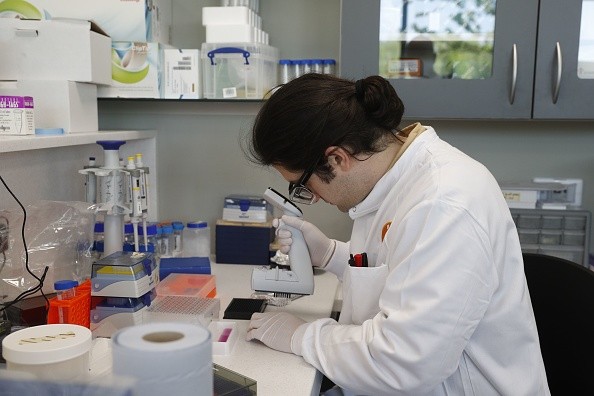Chemists found a clue to the chemistry of the early Earth, which might open doors to accelerating chemical synthesis for drug development.
Scientists found a mechanism for the peptide-forming processes in water that result in proteins and, ultimately, life on Earth.

Additionally, it may speed up the creation of medications to combat the world's most serious illnesses.
Important Scientific Query
Scientists have been perplexed by the process of peptide-forming events in water for decades until chemists at Purdue University uncovered it.
Graham Cooks stated, "This is essentially the chemistry underpinning the creation of life."
He has a distinguished professorship in analytical chemistry at Purdue University's College of Science. This is the earliest example of the spontaneous formation of peptides, the fundamental units of life, by ancient molecules, simple amino acids, in pure water droplets.
This water-based chemistry, which results in proteins and, eventually, life on Earth, may hasten the creation of drugs to combat the world's worst illnesses, as per the study.
The team's finding was released in the Proceedings of the National Academy of Sciences publication.
Unraveling the Origin of Life

For many years, scientists have proposed that the oceans were where life started on Earth.
The chemistry underlying this, however, remained a mystery.
Peptides can be created by reacting and latching together raw amino acids, which were regularly given to early Earth by meteorites.
These serve as the foundation for proteins and, ultimately, life.
Strangely, the procedure calls for the loss of a water molecule, which seems quite unlikely in a moist, aquatic, or marine environment.
Water was needed for the formation of life. It also required a location distant from the water, though.
The answer to the riddle, "Water isn't wet everywhere," has been discovered by mass spectrometry and early Earth chemistry specialist Cooks and his research group.
On the margins, where the water droplet meets the atmosphere, extremely quick reactions can occur, converting abiotic amino acids into the building blocks of life.
As a result, areas where waves pound the ground and sea spray shoot into the air, and fresh water burbles down a hill were fruitful environments for the possible emergence of life.
Incredibly Useful

Researchers have been examining chemical reactions in water-containing droplets for more than ten years using mass spectrometers.
According to Cooks, the rates of reactions in droplets can be up to a million times quicker than those of the same compounds reacting in bulk solution.
The rapidity of these reactions eliminates the need for catalysts, accelerating the processes and enabling the emergence of life in the case of early Earth chemistry.
The goal of decades of scientific research has been to understand how this process functions.
Scientists may use the knowledge of how life first appeared on Earth to understand better why it did and to direct their hunt for life on other planets or even moons.
Scientists' knowledge of chemical synthesis has been completely transformed by understanding how amino acids build themselves into proteins and, eventually, living forms.
By speeding up critical processes, that same chemistry may perhaps aid synthetic chemists in discovering and developing new drugs and therapeutic treatments for disorders.
New Age of Chemistry
According to Cooks, synthetic chemists operate in buildings with lights on if you go around a university campus at night.
Their tests proceed so slowly that they take days or weeks to complete.
This is unnecessary, and we have developed a tool now being utilized at Purdue to speed up the synthesis of unique compounds and possible new medicines.
Related Article : What Makes Us Human? This Often Overlooked DNA May Provide Answers
For more biological news, don't forget to follow Nature World News!
© 2026 NatureWorldNews.com All rights reserved. Do not reproduce without permission.





